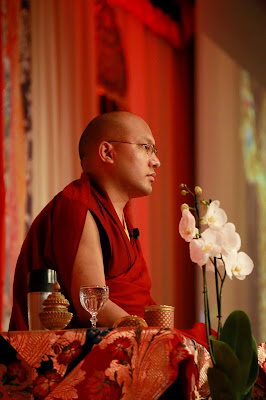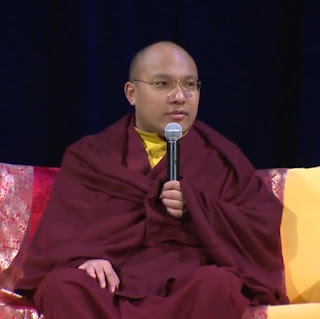Sometimes when karma is described
or explained, it can seem very complicated and quite difficult to understand.
Sometimes it is even said beyond our conception, indescribable, impossible to
explain. I feel that karma need not be that way, it need not be so complicated
and confusing. It can be very simple.
When I first landed in Frankfurt,
I saw lots of trees, lots of green, and this green was kind of fresh, healthy,
shiny. It is not the same in India, there are trees, but trees are dusty,
unclean, and unhealthy. So I found Frankfurt green and especially nice.
Therefore, when I came, when any
new person comes, we come to know, no one has to explain that someone has cared
for this greenery and trees. Without explaining we can see what kind of people
live in this place. That is the karma.
HH, 17th Karmapa
Ogyen Trinley Dorje
Ogyen Trinley Dorje
























